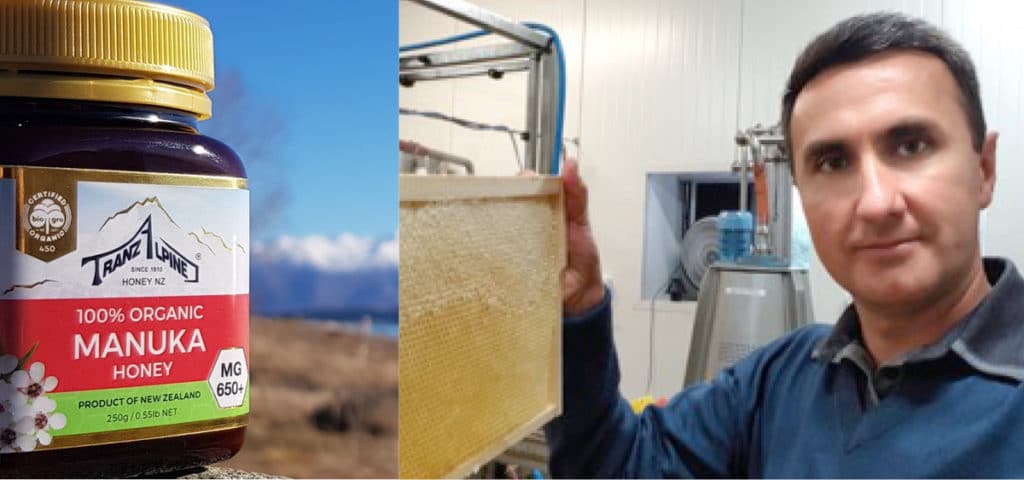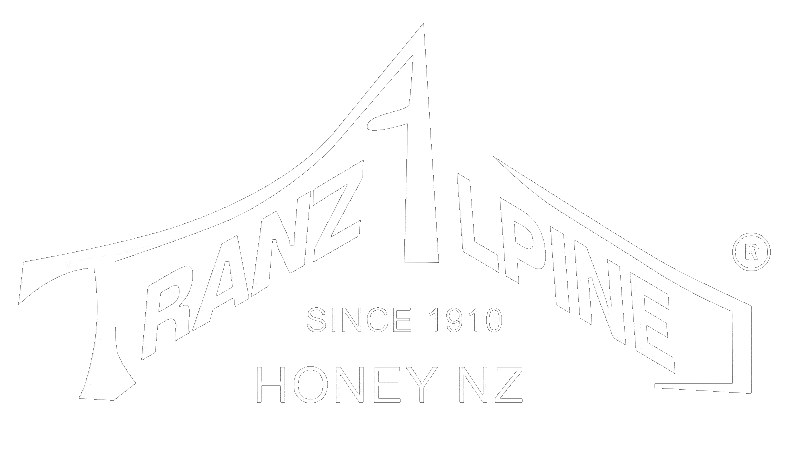
Why organic honey is better for you, the bees and our land
This week we chat with Yuriy Soshnikov, Managing Director of TranzAlpineHoney New Zealand. Based in the South Island of New Zealand TranzAlpineHoney is a family-run business which has been working in harmony with bees for over 100 years.
TranzAlpineHoney harvests its organic honey from isolated and remote corners of New Zealand’s beautiful South Island. Now TranzAlpineHoney is one of the largest organic Manuka honey producers in New Zealand.
AG: Could you tell us a little bit about what makes Manuka honey so special?
YS: New Zealand Manuka honey is a super food well-known for its antibacterial properties, digestive support, wound healing effects and general wellbeing.
The Manuka tree (leptospermum scoparium) has been known for centuries to the Māori people for its health benefits. It was later, with the arrival of Europeans who introduced the common honey bee, that it was recognised that bees feasting on the Manuka tree made great honey.
What the Māori knew from their Rongoā Māori (traditional medicine), that Manuka may help with digestive complaints, wound healing, inflammation and infections.
AG: How did you become involved with the company?
YS: Beekeeping has been an important part of my life for over 25 years, both in the Ukraine and New Zealand. In 2006 I became a part of the Newton family business and established TranzAlpineHoney brand around the world.
In 2018 Derek sold TranzAlpineHoney to Victoria and me, making sure the TranzAlpineHoney organic honey business stays in the same family for more years to come.
AG: What is your marketing secret?
YS: Our secret is in our heritage, we’ve been obsessed with organic beekeeping for over 100 years and certified organic for the last 25 years.
Here at TranzAlpineHoney we take care of the details so we make sure our customers can enjoy the very best organic honey. As a result our premium organic honey is enjoyed across 28 countries and five continents. Right from the beginning we realised the importance of producing honey that’s sustainably produced and organic. It’s important to the bees, the quality of the honey, the land and for our customers.
In 2008 we launched a marketing campaign focusing on TranzAlpineHoneys 100+ year heritage in New Zealand and the health benefits of organic honey. It was important to us that New Zealand and overseas consumers and prospective international partners could understand who we are, what we do and why we do it for them. Not everyone can live in such a pristine part of the world, which is why we love that we can share our organic honey with the world.
AG: And finally, what makes your honey organic?
YS: By choosing TranzAlpineHoney organic honey our customers aren’t just cutting out potentially harmful chemicals they’re also choosing natural sweetness that has been harvested in a sustainable and eco-friendly way. In caring for our bees we also care for our land. And our land deserves to be cared for. In 2018 we celebrated 25 years of certification with BioGro™. So we’re not jumping on the organic bandwagon. In fact we’ve always been organic – for over 100 years.
BioGro™ is New Zealand’s largest and best-known certifier for organic products, accrediting over 750 products throughout New Zealand and the Pacific. Not only does this certification mean that TranzAlpineHoney organic honey has no traces of sprays or synthetic chemicals, but it also means that our honey can be traced back to our individual hives that are scattered throughout the Canterbury and remote Westcoast of South Island New Zealand.
Organic honey is better in every single way. Organic honey has more flavours and unique taste. It’s helping people who choose other organic produce to make a sweet choice without risk of unnecessary exposure to pesticides or herbicides. We don’t use chemicals or sprays. Our bees are only fed honey and nothing else. We have to be careful and caring in the way we’re looking after our bees, keeping them healthy and strong and getting them ready for the new harvest season in time.
Ashburton Guardian, 2019
Posted in Natural Health, Organic
Share:

